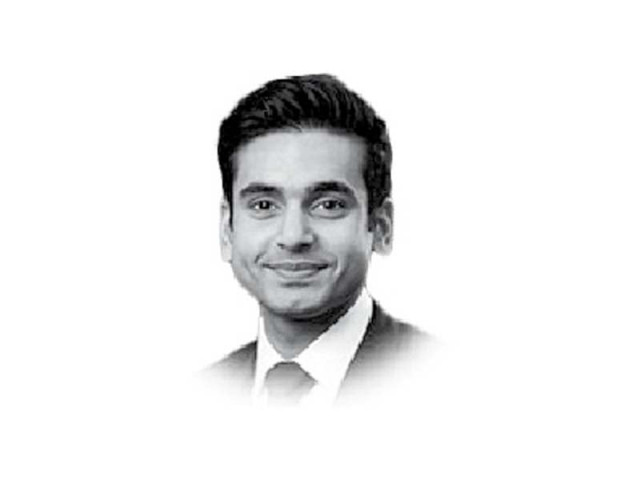Dar’s TV interview and importance of merit
Every Pakistani should feel the flush of former finance minister Ishaq Dar’s humiliation

He clears his coarse throat, once and then twice for good measure. Licks his lips, but his mouth is parched. He tries to speak but before words escape, a wide-eyed expression gives away his dread and fright. He tries to compose himself. He fails flailing in a twitchy panic for the next 30 minutes, ending with a fit of sheepish bows, in acknowledgement of an absolute embarrassment of an interaction.
This is not the description of a school boy’s first job interview. No, it is the story of a senior Pakistani politician’s bumbling, blithering performance on Western television. Twitter echoes now with the cacophony of our many and endless reactions: the PTI supporters’ gleeful mocking, the Sharif stooges’ loyal defence, the deafening silence of the politically disillusioned.
But every Pakistani should feel the flush of former finance minister Ishaq Dar’s humiliation, regardless of the many folds and crevices of our national politics. His performance reflects on Pakistani society as a whole, in ways that are damaging to our collective nationhood. It highlights, again, that Pakistan’s political class’ shunning of merit and competence as criteria for power is at the very centre of our national dysfunction. What damage does Dar’s one interview really do to Pakistan? Plenty.
First, it undermines our national conversation. While the PDM’s anti-military rhetoric and calls for an early election are irresponsible, and their ulterior motives regrettable, the debate around the state of our democracy is a healthy one. We should revel in the fact that, for the first time in Pakistan’s history, a large majority of the public today is thinking about how power is bestowed, and their own role in choosing our leaders. Dar’s inability to articulate any cogent points to this tune is a missed opportunity, and an insult to the real conversations happening in Pakistan. It de-emphasises the gravity of the change in the public’s mindset, and belittles the political debate to a mere dynastic feud.
Second, it misportrays Pakistan’s ability to debate on the global stage, and allows the international community to take us less seriously. Dar’s stuttering, skittish deference to a Western journalist, especially in contrast to his chest-beating in Pakistan, is a sad, and frankly discrepant, indication of Pakistan’s coffers of talent. Dar is not the first to stumble in this way. Bilawal Bhutto’s performance on the same programme in 2018 was not much better. Neither, however, is fully to blame as both lack the intellectual tools to genuinely hold their own in what are admittedly high-pressure situations. But as Pakistan’s senior representatives on the global stage, they are the best indication anyone outside of our country has of our people. The lack of merit in our political system has never been so stark. It is, for all intents and purposes, a national emergency.
The final outcome is an ironic one. Dar, representing Nawaz Sharif, went on Western media, expecting to gain foreign sympathy for an ill-guided movement in Pakistan, because it professes a wish for democratic reform. Instead, they were found out, for their hypocrisy and self-interest. Had Sharif built a meritocratic party, and thus, sent a better equipped crony instead of his daughter’s father-in-law, he may well have been successful.
Merit remains a dirty word to the likes of Bilawal and Nawaz. Of course, merit and dynasty rarely mix. Let us free ourselves from the handicap of picking our leaders from the offspring of an incompetent few. Merit must be a central tenet of our future democracy.
Published in The Express Tribune, December 9th, 2020.
Like Opinion & Editorial on Facebook, follow @ETOpEd on Twitter to receive all updates on all our daily pieces.
















COMMENTS
Comments are moderated and generally will be posted if they are on-topic and not abusive.
For more information, please see our Comments FAQ